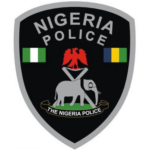For the benefit of those who were born after 1993 or those who were still too young during the 1993 presidential election, Option A4 electoral system, also referred to as the open ballot system is a method of voting whereby voters openly queue behind the picture of their prefered candidates in an election. This system was introduced by Prof Humphrey Nwosu under the regime of former military president Ibrahim Babangida. This method of voting, when used in the 1993 election, produced the fairest and freest election in Nigeria’s history.
There was no rigging, no electoral malpractice, no ballot snatching, no shooting, etc. Above all, this is the least expensive method of voting as it does not require ballot papers, ballot boxes etc. This was one of the best ideas to come out of Babangida’s government. However, the major disadvantage of this method of voting is that people will see whom you voted for, therefore no secret or privacy of your votes. Your choice is public, which might likely endanger the voter. Sadly, this method of voting was jettisoned at the onset of the 1999 democratic dispensation.
Yours truly ran a series of online campaigns for many years for Nigeria to revert to this system. One of my good friends (Mr Onyeka) who lives in the same city where I live in Leicester, nicknamed me Option A4, and that is what he calls me till date. Compare this system with what is currently in operation in Nigeria. First, let’s start with the 1999 general election, where Chief Olu Falae then-presidential candidate of All Peoples Party alleged rigging of the election and went ahead to challenge the result in court. He lost his case.
During the 2003 general election, former president Obasanjo declared it a do or die affair for him and his party. Over 200 people were killed during the election. His opponent, then, Buhari, went to court to challenge the result, but he lost the case. The 2007 election was marred by serious irregularities. Late Yar’Adua who emerged president from that election acknowledged the irregularities in the election that brought him to power. He set up the Justice Uwais electoral reform panel. Yar Adua’s opponent, then, Buhari, went to court to challenge the result but lost the case.
During the 2011 general election, many people were killed, all over Nigeria. Former President Goodluck Jonathan set up his electoral reform panel. His opponent then, Buhari went to court to challenge the result but lost the case. The 2015 general elections witnessed some many electoral malpractices and frauds. Many people lost their lives too.
Fast forward to the 2019 general elections, same old stories of electoral malpractices. Before the election itself, President Buhari gave order to security agencies to shoot at sight anyone trying to snatch ballot boxes. During the presidential election in Rivers State alone, over 30 people were killed. Many died during the conduct of the rest of the election. The government spent over N250 billion to conduct the election, but the outcome is worse than previous elections in Nigeria.
The political parties and individuals would have also spent so much during the election. Therefore, the total estimated cost of the 2019 general election can be about N500 billion. President Buhari’s opponent, Alhaji Atiku Abubakar, has already gone to tribunal/court to challenge the result. Many that lost state gubernatorial elections, senatorial and House of Representatives elections are also heading to court to challenge different results. The cost of engaging lawyers/senior advocates is huge as both the winners and losers would pay for representations.
Suffice it to say that the current electoral system in operation is a thorn in our flesh except we do not wish to tell the truth to ourselves. Option A4 electoral system did not witness any electoral disputes, no court cases, except when Babangida annulled the election and people went to court to challenge his action. But since we abandoned this method, every other election from 1999 till 2019 had experienced bitter electoral court cases that ran into billions of naira. The only major benefit of our current system is that of privacy of your votes, as no one knows whom you have voted for or against.
Looking at the human and material costs of our current system which does not produce free and fair election and the Option A4 which costs much less, no malpractices, no killings, yet produce free and fair election, without doubt, the latter is preferable under any circumstance despite its disadvantage. The question is why don’t we go back to the system that produced the freest election in Nigeria’s history?
C.V.Akuta writes from Abuja.



